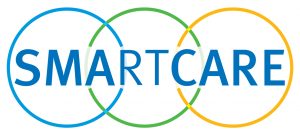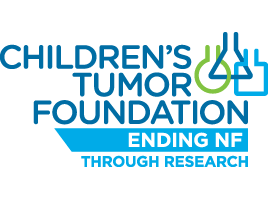2014 – A Good Year for Rare Disease Registries

What a year 2014 has been in the area of rare disease and rare disease registries. It was an active year for rare disease registries. The number of rare disease patient registries continued to grow - from just 500 in 2011 to over 620 in 2014. Here are some of the highlights from 2014.
Raising Awareness of Rare Diseases
The Ice bucket challenge for ALS/MND swept the globe raising billions in cash and raising awareness of rare diseases. Thousands of events were held in over 80 countries worldwide to celebrate Rare Disease Day in February.
Legislative Changes in Support of Rare Disease Research in 2014
The European Medicines Agency announced greater fee reductions for large companies planning to market orphan drugs for rare diseases in the EU, as a further incentive for orphan medicinal product development. It also confirmed current financial assistance for SMEs.
A bill passed with commencement in 2016 means that pharmaceutical companies and academic researchers will have to post results from all their European clinical trials in a publicly accessible database, increasing transparency and trust. These trials must be registered in a central database and a summary of results positive or negative must be uploaded within one year after the end of the trial.
The much anticipated new European Regulation on Clinical Trials was finally published in May. Under the new regulation, multinational clinical trials will be easier to conduct, facilitating cross-border collaboration for larger clinical trials.
The much awaited ontology of rare diseases was released in February, it provides a structured vocabulary for rare diseases, capturing relationships between diseases, genes and other pertinent features, in a language directly understandable by computers. Ireland and Scotland adopted their National Rare Disease plans while Spain updated its plan.
The number of rare disease patient registries continued to grow from just 500 in 2011 to over 620 in 2014.
EPIRARE finalised its recommendations which state that all registries should be web-based and inter-operable throughout Europe. In addition, the EPIRARE committee has proposed that new and existing registries use a core set of common data elements.
and much much more.
We have also seen a big increase in interest in linking registries to genetic databases.
EPIPRARE100
We'll shortly announce EPIRARE 100, a free patient registry where any patient organization will be able to set up a registry with up to 100 patients based on the EPIRARE minimum data set. This will be sufficient for rare diseases with low prevalence and for regional disease registries. For larger patient populations this registry can be used as a “Proof of Concept”.
The EPIRARE 100 registry is based on the same software and secured hosting services are our commercial software. There will be no time limit associated with the free version and we hope that this will replace the “spreadsheet hell” that many patient organizations were forced in the past to use.
So I'm hoping that there will be more rare disease registries this year because as one patient advocate recently said “registries are the cement of clinical research”.
The best of luck for 2015.
Learn more about our work in the rare disease registries space.
Latest News
Real-World Data Collection Enables Evaluating the Safety and Effectiveness of Treatments for Spinal Muscular Atrophy
This exciting initiative combines collecting real-world patient data by neurologists, clinicians and patients to enable clinical research and engagement of spinal muscular atrophy patients receiving treatment.
SMArtCARE is a multi-year joint initiative of neurologists, paediatricians, and patients with spinal muscular atrophy (SMA). Spinal muscular atrophy refers to a group of rare genetic diseases resulting in muscle wastage and weakness. Symptom onset can be seen in both children and adults but the most severe form typically presents in children under 18 months old. Until recent treatments survival past childhood was unusual.
Read MoreChildrens Tumor Foundation Innovative Patient Reported Patient Registry Platform
The NF registry is a one of a kind project, where the OpenApp team worked in collaboration with CTF to develop and support a platform that meets their requirements, as a secure and effective tool to empower NF patients and their caregivers. A dedicated registry is the most efficient way to raise awareness/advocate for NF, expand the NF community, and connect to help end NF.
Read MoreWhy You Need A Software Maintenance Management Plan
Combining the development efforts and the ongoing maintenance of your software is key to ensuring that you have a robust and constantly improving and evolving solution.
Having a software maintenance plan is just as important as the initial development. Professionally managed maintenance allows for the continual improvement and adaptation to changing business needs and technological advancements.
Read MoreIQVIA (NYSE:IQV) is a leading global provider of advanced analytics, technology solutions and contract research services to the life sciences industry dedicated to delivering actionable insights. Learn more at www.iqvia.com.

Copyright © 2024 | Privacy Policy
OpenApplications Consulting Ltd. Registered in Ireland No. 355595





